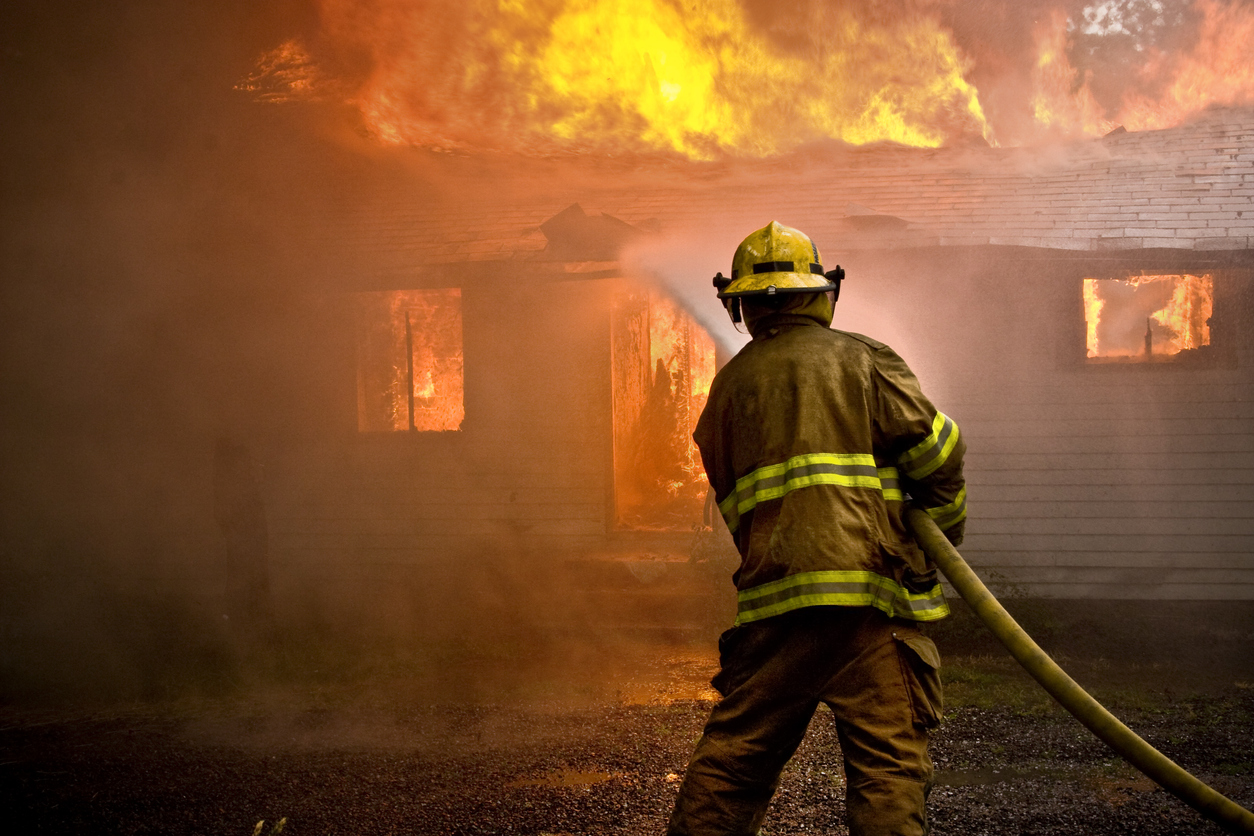Stephen Hasner | Personal Injury | January 31, 2023

Every year, close to 350,000 homes catch fire, and more than 2,500 people die in these blazes. The idea of a house fire is many people’s worst nightmare, and you may worry about how you can keep your home and family safe. The good news is that many house fires are preventable.
The first step to preventing fires is knowing what causes them. Read on to discover the five leading causes of house fires and what you can do to stop them before they start.
Cooking
It may come as no surprise that cooking is the number-one leading cause of house fires in the United States.
In fact, cooking causes almost half of house fires and is the second leading cause of death from fires. Almost half of burn injuries in house fires happen in the kitchen.
These fires are so common because cooking requires us to have lots of potentially flammable materials near a heat source or even an open flame. This is an even higher risk in homes with gas stoves.
The best way to prevent a cooking fire is to always stay nearby and alert when you’re cooking. Never leave a pan unattended, and do your best to keep the area on and around your stove clear. Always check that nothing flammable is sitting on a burner before you turn it on, and keep a fire extinguisher in the kitchen.
Heating Systems
Heating systems are the second-most common cause of house fires, sparking about 13 percent of blazes. Older furnaces may have defects that cause them to catch, but space heaters are one of the most common culprits. Chimneys and fireplaces that aren’t managed appropriately can also start a fire.
Before the cold weather sets in each year, make sure to have your furnace inspected to make sure it’s in good working order. Replace space heaters that are old or that have frayed wires, and never plug a space heater into a power strip.
It’s also a good idea to get chimneys and fireplaces cleaned and inspected each year.
Electrical Systems
Electrical systems are another common culprit of house fires, especially in older homes.
About 9 percent of house fires start as a result of a problem with an electrical system or lighting devices. This is most common in homes where the electrical work has not been done by a qualified professional or in homes with outdated wiring.
When you’re buying a home, be sure to have it inspected, and pay special attention to the wiring in older homes. If you’re renovating a house, always make sure you hire a licensed electrician to run the wiring.
And keep an eye out for signs of faulty wiring, including flickering lights or discoloration around outlets.
Intentional Fires
Unfortunately, about 7 percent of house fires are set intentionally. In some cases, these fires are set by children playing with matches or lighters who were too young to know better. But sadly, many intentional house fires are suicide attempts, and others are arson.
The best way to prevent an intentional fire is to teach children about fire safety and always make sure matches and lighters are locked in a safe place.
It’s always good to have an emergency plan with your family in case of a fire. Teach your children how to safely get out of a burning house, and decide on a spot where you’ll meet if you do have to escape.
Smoking
Smoking causes about 5 percent of house fires, but it is the number-one leading cause of death from fires. Smoking in bed is particularly dangerous, since you may drift off and set the bedding on fire. But smoking materials can also make great tinder if left near a candle or a faulty outlet.
You should never, ever smoke in bed, and it’s best to avoid smoking in the house at all. When you put out a cigarette, make sure it’s completely out before you walk away from it, and use ashtrays that have a wide base to keep them from tipping over.
You should never, under any circumstances, smoke around medical oxygen – it can explode.
Get Help After a Fire
House fires can be devastating, but the good news is a few simple fire safety measures can help to reduce your risk of a fire starting. Always stay alert in the kitchen, and have your heating systems inspected each year to make sure they’re up to snuff. Look out for faulty wiring, keep matches and lighters locked up, and try to avoid smoking in the house.
If you’ve been injured in a house fire, you could be entitled to a personal injury settlement. Our lawyers have more than eighty years of combined experience, and we’ll bring it all to bear on your case. Schedule a free consultation with us today to discuss your case.
Contact the Atlanta Personal Injury Lawyers at Hasner Law, P.C. For Help
For more information, please contact the Atlanta personal injury law firm of Hasner Law P.C. at our nearest location to schedule a free consultation today.
We serve in Fulton County, Chatham County, and its surrounding areas:
Hasner Law PC – Atlanta Law Office
2839 Paces Ferry Rd SE #1050
Atlanta, GA 30339
(678) 888-4878
Hasner Law PC – Savannah Law Office
221 W York St
Savannah, GA 31401
(912) 234-2334


